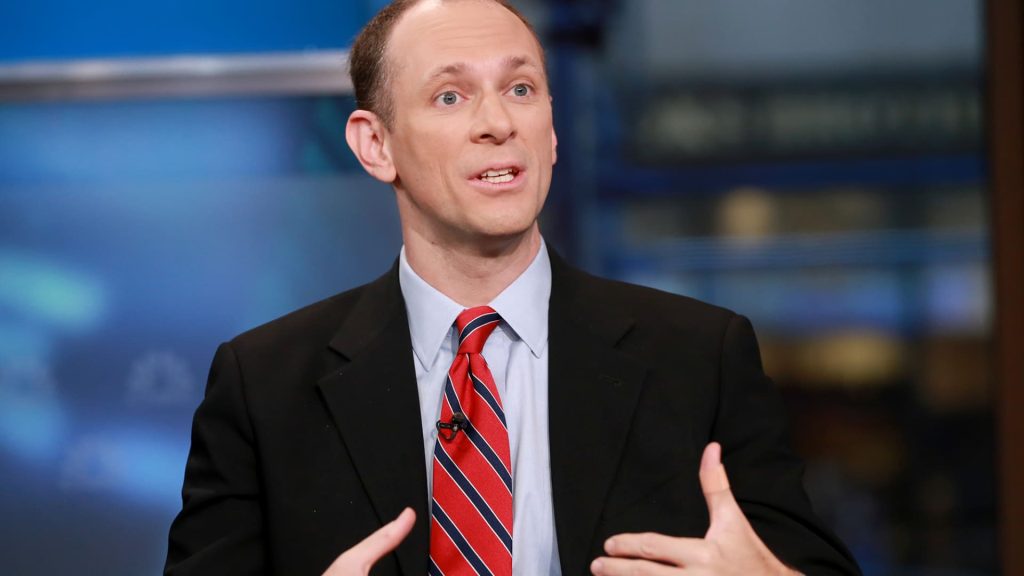In a recent statement, Austan Goolsbee, President of the Federal Reserve Bank of Chicago, emphasized the significance of preserving the Federal Reserve’s independence amidst ongoing criticism from former President Donald Trump regarding Chair Jerome Powell‘s handling of monetary policy. Goolsbee articulated his concerns over potential political interference in monetary policy, highlighting its negative repercussions on inflation, growth, and employment. This exchange marks an escalating tension between political leadership and central bank officials as the economic landscape becomes increasingly complex.
On Monday, Goolsbee appeared on CNBC’s “Squawk Box,” where he detailed the critical importance of the Federal Reserve’s autonomy in effectively managing inflation and sustaining economic stability. His insights came in the wake of Trump’s recent remarks, which reflect a growing narrative questioning Powell’s approach to interest rates. Goolsbee’s affirmations suggest that any attempts to compromise the central bank’s independence could lead to dire economic consequences.
| Article Subheadings |
|---|
| 1) The Call for Independence |
| 2) Trump’s Criticism of Federal Policy |
| 3) Economic Implications of Political Pressure |
| 4) The Future of Powell’s Leadership |
| 5) Consensus on Central Bank Autonomy |
The Call for Independence
In his recent appearance, Austan Goolsbee articulated a firm stance on the necessity of maintaining the Federal Reserve’s independence. He pointed out that the long-term expectations surrounding the Fed’s ability to manage inflation effectively, specifically targeting a rate of 2%, hinge significantly on its autonomy from political influences. Goolsbee stated,
“Fed independence is critically important for that.”
His comments reflect a deep-rooted consensus among economists that reducing the influence of political figures over the Fed can lead to a more stable economic environment.
Trump’s Criticism of Federal Policy
Former President Trump has been vocal in his discontent regarding Chair Jerome Powell’s approach to interest rates, particularly expressing that they should be lowered to stimulate growth. Over the past weeks, Trump has intensified his criticisms, suggesting that if the Federal Reserve had leadership understanding the economic challenges properly, interest rates would already be on a downward trajectory. He remarked,
“If we had a Fed Chairman that understood what he was doing, interest rates would be coming down, too.”
This sentiment underscores Trump’s belief that the current leadership is not adequately responding to economic fluctuations.
Economic Implications of Political Pressure
Goolsbee highlighted that political interference in the long-term management of monetary policy could not only undermine the Federal Reserve’s credibility but also precipitate higher inflation and increased unemployment rates. His assertion that there would be reduced willingness to make tough decisions in a politically charged atmosphere raises alarms about the potential repercussions of compromising the Fed’s autonomy. He cautioned that attempts to sway monetary policy for political gain might ultimately lead to detrimental economic outcomes, emphasizing that history supports the need for an independent Federal Reserve.
The Future of Powell’s Leadership
As discussions around political influences intensify, the future of Jerome Powell remains uncertain. White House economic adviser Kevin Hassett has hinted at the possibility of exploring the removal of the Fed chair, though Powell has maintained that his position is secure until his term concludes in May 2026. Despite the speculation, officials advocate for upholding the principles of independence, as Powell has stated unequivocally that he cannot be dismissed legally from his role. This ongoing ideological battle is not just about Powell, but serves as a reflection of broader tensions between the executive branch and the Federal Reserve’s mission to prioritize economic stability.
Consensus on Central Bank Autonomy
Throughout his comments, Goolsbee aligned with a prevailing sentiment within the economic community: that the independence of the Federal Reserve is crucial for effective monetary policy. His remarks drew on observations from countries experiencing high inflation and instability, underscoring the correlation between a lack of independence and poor economic performance. He declared,
“Just look at the countries where they don’t have Fed independence. Inflation is higher, unemployment is higher, growth is worse.”
This holistic perspective reiterates the importance of sustaining a nonpartisan approach to monetary policy, particularly in tumultuous economic cycles.
| No. | Key Points |
|---|---|
| 1 | Federal Reserve independence is crucial for managing inflation and economic stability. |
| 2 | Former President Trump has voiced criticism of Jerome Powell’s monetary policy. |
| 3 | Political pressure may lead to increased inflation and unemployment rates. |
| 4 | Jerome Powell’s fate as Fed Chair appears uncertain amidst political tensions. |
| 5 | Historical trends support the necessity of central bank autonomy for economic health. |
Summary
The ongoing tension between political figures and the Federal Reserve underscores the critical importance of maintaining the independence of the central bank to ensure stable economic conditions. Austan Goolsbee’s remarks serve as a reminder that interference could lead to detrimental outcomes such as inflation and unemployment rates spiraling out of control, drawing attention to the need for effective leadership underpinned by economic expertise. As discussions continue about the future of Jerome Powell‘s leadership amidst political scrutiny, the broader implications for the global economy remain a significant concern.
Frequently Asked Questions
Question: Why is Federal Reserve independence important?
Federal Reserve independence is crucial because it allows the central bank to make decisions based on economic data rather than political pressure, leading to more effective management of inflation and overall economic stability.
Question: What has Donald Trump criticized regarding the Federal Reserve?
Donald Trump has criticized Fed Chair Jerome Powell for not lowering interest rates, claiming that proper leadership would have led to a reduction in rates to support economic growth.
Question: What are the potential consequences of political interference in monetary policy?
Political interference in monetary policy could result in higher inflation, decreased economic growth, and increased unemployment, as it hampers the Fed’s ability to make necessary decisions for the economy’s health.
